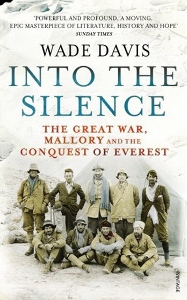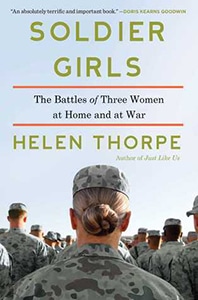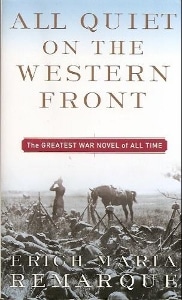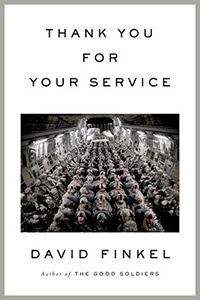Veterans Day started out as Armistice Day, first declared on Nov. 11, 1918, when the fighting in World War I ceased (the war officially ended in June 1919 with the signing of the Treaty of Versailles). It was originally created to honor WWI veterans, but by 1954, after a second world war and the Korean War, the day was renamed Veterans Day and expanded to honor all U.S. veterans for their service. (Some veterans feel that the focus should have remained on world peace.) Whatever your opinion may be on war — and the global conflicts we’re currently involved in — these thought-provoking books offer historical insights on wars past and present.
 Unbroken: A World War II Story of Survival, Resilience, and Redemption
Unbroken: A World War II Story of Survival, Resilience, and Redemption
Author: Laura Hillenbrand
It’s no surprise that this #1 New York Times bestseller (by the author of Seabiscuit) is soon to be made into a movie, with its cinematic high adventure and nail-biting suspense. Louis Zamperini was a teenage delinquent who channeled his anger into running, eventually making it to the 1936 Berlin Olympics. In WWII, Zamperini joined the Army Air Forces, becoming a daring airman. In 1943, his bomber crashed into the Pacific Ocean, and Zamperini made it onto a life raft. But he would still have to endure thousands of miles of open ocean, sharks, starvation, enemy aircraft, and imprisonment in a war camp.
 Into the Silence
Into the Silence
Author: Wade Davis
Into the Silence may not seem like a typical war book at first glimpse: it’s actually about Great Britain’s first attempts to summit Mt. Everest in the 1920s. Yet author Wade Davis opens with a lengthy description of the horrors of WWI, and it’s his belief that the horrors these young veterans experienced led directly to their dangerous, risk-taking behavior on the slopes. Having failed to claim either the North or South Poles, the Royal Geographical Society — and mountaineer George Mallory — were determined to be the first to plant a flag on Everest, even if people died trying. This hefty tome won the 2012 Samuel Johnson Prize for Non-Fiction. Read our review.
 Soldier Girls: The Battles of Three Women at Home and at War
Soldier Girls: The Battles of Three Women at Home and at War
Author: Helen Thorpe
Unlike past wars, a significant percentage of American soldiers sent overseas in the post-9/11 era have been women. Yet female soldiers have a very different military experience, embedded as they are in a predominantly male and aggressive culture, and physically and sexually vulnerable in ways their male colleagues aren’t. In Soldier Girls, Helen Thorpe follows the lives of three women for over a decade into the military, overseas to combat, and back home — and overseas again. As the women become friends, we learn about their families and relationships. We see them work extremely hard, deal with sexual advances from men, and struggle to stay connected to their families back home. We see the negative effects of war, their coping mechanisms, and their efforts to heal after terrifying battle trauma.
 All Quiet on the Western Front
All Quiet on the Western Front
Author: Erich Maria Remarque
Few would dispute that World War I was one of the 20th century’s greatest tragedies. The “Great War” not only led to the death of over 16 million soldiers and civilians, it also introduced a host of new and horrible ways for humans to kill and maim each other. All Quiet on the Western Front remains a classic war novel, effectively capturing the dreadful experience of life and death on the front lines through the eyes of 19-year-old German soldier Paul Baumer. While there are no heroics or happy endings here, Baumer’s humanity despite his lonely travails is portrayed with a sense of honor. Read our review.
 Thank You for Your Service
Thank You for Your Service
Author: David Finkel
The follow-up to David Finkel’s award-winning 2010 book The Good Soldiers, the story of army infantry soldiers of the 2-16 and their wartime experience in Baghdad, Thank You for Your Service tells a sadder and more complicated story: what our veterans go through after they return home from deployment, often physically or mentally shattered, and surrounded by loved ones who want to help but can’t understand what they’ve been through. Finkel researched for years to complete this book, which asks us to ponder what we ask of our military servicemen and servicewomen — and what, exactly, we’re thanking them for when they return.
[/fusion_builder_column][/fusion_builder_row][/fusion_builder_container]
- Spring 2020 Book Preview - May 15, 2020
- Winter 2020 Book Preview - January 1, 2020
- Fall 2019 Book Preview - September 26, 2019

Leave A Comment